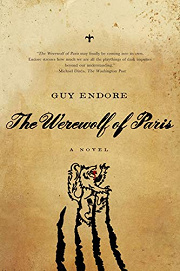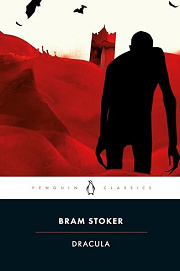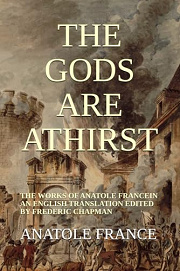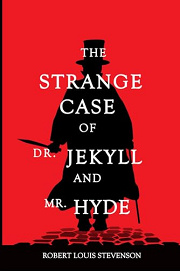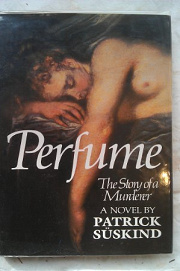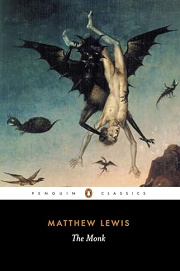Share your thoughts in a quick Shelf Talk!
The Werewolf of Paris by Guy Endore
"Dark, atmospheric, and steeped in folklore, The Werewolf of Paris follows a haunting trail of desire and dread through war-torn streets. This classic of supernatural horror marries historical drama with primal terror, making The Werewolf of Paris an unforgettable descent into the beast within."
Have you read this book? Share what you liked (or didn’t), and we’ll use your answers to recommend your next favorite read!
Love The Werewolf of Paris but not sure what to read next?
These picks are popular with readers who enjoyed this book. Complete a quick Shelf Talk to get recommendations made just for you! Warning: possible spoilers for The Werewolf of Paris below.
In The Werewolf of Paris, did you enjoy ...
... the patchwork of letters, diaries, and clippings that make the horror feel unearthed from history?
Dracula by Bram Stoker
If the way Endore frames Bertrand Caillet’s atrocities through found documents and testimonies hooked you, you’ll love how Dracula unfolds via Jonathan Harker’s journal, Mina’s typewritten notes, and newspaper clippings. That same documentary feel builds dread piece by piece, turning supernatural terror into something chillingly plausible—much like the archival layers that surround the Paris Commune episodes in The Werewolf of Paris.
... the bloody upheaval of Parisian politics and the psychology of fanaticism?
The Gods Are Athirst by Anatole France
If the siege-and-Commune backdrop—crowds, tribunals, and shifting allegiances—deepened the horror around Bertrand’s crimes, The Gods Are Athirst dives headlong into Parisian revolutionary zeal. You’ll watch the idealistic painter Gamelin descend into fanaticism and terror courts, echoing how political fervor in The Werewolf of Paris amplifies private monstrosity and turns the city itself into an accomplice.
... the tormented split between human conscience and monstrous compulsion?
The Strange Case of Dr. Jekyll and Mr. Hyde by Robert Louis Stevenson
Bertrand Caillet’s struggle to restrain his predatory impulses—and the nightly surrender to them—mirrors the war between Jekyll’s better nature and Hyde’s savagery. Stevenson’s tight psychological focus makes each transformation feel inevitable and damning, much like Endore’s probing of guilt, desire, and the terrifying relief of giving in to the beast.
... the unflinching, sensory grimness of historical violence and predation?
Perfume: The Story of a Murderer by Patrick Süskind
If the stark brutality of Bertrand’s killings against the backdrop of 19th‑century turmoil gripped you, Perfume offers an equally visceral descent. Jean‑Baptiste Grenouille stalks Paris with inhuman detachment, committing exquisitely grotesque murders in pursuit of the perfect scent—capturing the same chilling blend of historical detail and uncompromising horror that made Endore’s Paris so haunting.
... a transgressive, gothic portrait of sin where the protagonist’s fall drives the terror?
The Monk by Matthew Lewis
If you were compelled by Bertrand’s status as a predator at the story’s center—and by Endore’s scathing look at religious corruption in his origins—The Monk puts the villain front and center. Father Ambrosio’s slide from revered holiness to murder and diabolism mirrors the fascination of watching a central figure commit unspeakable acts, with the same blend of erotic menace, sacrilege, and moral collapse.
Unlock your personalized book recommendations! Just take a quick Shelf Talk for The Werewolf of Paris by Guy Endore. It’s only a few questions and takes less than a minute.
